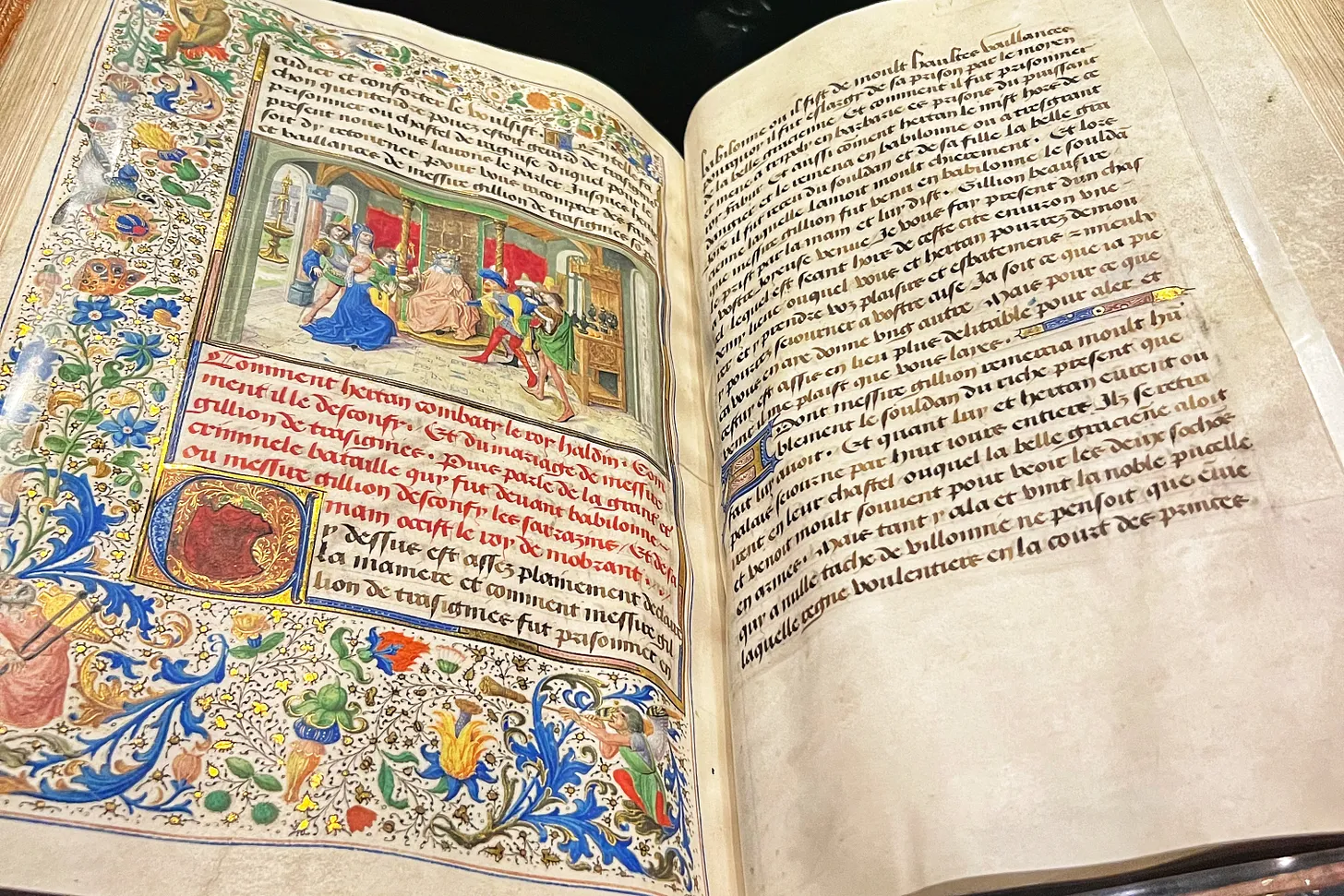
This post was first published in my newsletter. Why not subscribe?
On a lark, I decided to write down the first lines of all the books I’ve read in the past year. OK, it really wasn’t so much of a lark. I have a point. But first, I want to share the first lines with you. My observations (and attribution) will follow.
(Any mistakes in transcription are mine.)
- Zhongii village lay flattened under the sun like a defeated dog that has given up on finding shade.
- I had my recurring dream last night.
- The baloney weighed the raven down, and the shopkeeper almost caught him as he whisked out the delicatessen door.
- I was four years old when I first met a dragon.
- Reginald Gatling’s doom found him beneath an oak tree, on the last Sunday of a fast-fading summer.
- My brother, Wilfred, keeps saying it’s not fair that it should all have happened to me.
- The man billed as Prospero the Enchanter receives a fair amount of correspondence via the theater officer, but this is the first envelope addressed to him that contains a suicide note, and it is so the first to arrive carefully pinned to the coat of a five-year-old girl.
- By the time Professor Richard Lovell found his way through Canton’s narrow alleys to find the faded address in his diary, the boy was the only one in the house left alive.
- Nigel came down the street toward her, his face shadowed with annoyance.
- Waking was floating to the surface of a soft world of water, not what Kai had expected.
- In the wild waste, a girl, growing.
- The Erril of Sherill wrote a throme.
- The most nerve-wracking commissions, Madeline thought, were the ones that required going in through the front door.
- Before you arrive, you remember your lola, smoking.
- That day Pwyll, Prince of Dyved, who thought he was going to hunt, was in reality going out to be hunted, and by no beast or man of earth.
- Llyr Llediaith was a Chief among the Old Tribes, and the woman he slept with was black-haired Oenardim, Penardim who was beautiful.
- They turned their faces westward, toward the ancient path of the dead, those seven who were seeking a new life.
- In the early days, the wall of thorns had been distressingly obvious.
- Robert dreamed…It was The Dream—the one that visited him so often that it had long since lost any terrifying aspect and become as drearily predictable as the ones in which he as being driven out of town by a jeering, laughing mob, or found himself suddenly naked and pink as a shrimp while kneeling to court Violette-Elisabeth, the baker’s daughter.
- God as my witness, none of this would have ever happened if it wee not for those two fools back in Salalah.
Do you recognize any of these lines from your own reading? How many books would you be inspired to keep reading based on the first line alone?
Here are my observations:
- I don’t really read that many books in a year. [I did leave out a couple non-fiction and non-fantasy books as off topic.] I had to add the top book on my to-be-read pile to round this out to an even 20.
- All but two introduce a character, often more than one.
- Twelve introduce a place, even if it’s just as simple as “the street.”
- Eighteen introduce a question or challenge that demands curiosity.
- Exactly ZERO have blood, screaming, dead bodies or other histrionics.
It’s that last observation that really spawned this whole investigation. In some of the online writers group I belong to, writers regularly share the first line of their works in progress, usually for some constructive feedback. It is always surprising to me how many of those first lines involved high-intensity action and emotion, words that seemed designed to startle the reader into paying attention.
I understand why, of course. First lines are an incredibly important tool for hooking a buyer (whether that buyer is an editor or a reader) and, in many cases, set the entire tone for the book. New writers are told to start with action, to start with conflict, to start with something that will grip the reader’s attention from first word — what’s a better way to do that than murder or mayhem?
Here are some of the problems a too-dramatic opening line can lead to.
Say, for example, that the novel opens with someone screaming while getting attacked. The reader may feel a surge of sympathy for the character, because it’s a terrible thing to happen to anyone. But that’s the problem — the character could be anyone. The best the scene is going to trigger is a generic response we feel to observing any inhumane act. It doesn’t create an attachment to a particular character, which should be the number one goal of a story’s first scene.
Two: If the story starts in a place of intense drama, then it must continually build intensity as the novel progresses. How far will the story have to go to make the climax worse for the character(s) if it’s already gone to extremes in the opening scene?
Remember, action does not have to mean violence. It can be as simple as a person waking up or walking in a door.
Also, conflict does not have to mean physical violence. In fact, it might be better if we just took the word “conflict” out of our writing glossaries all together. Let’s think instead about challenges that must be faced. Sometimes they are internal, sometimes they are external, and sometimes they do mean an actual conflict — the main thing is that something is going on that is preventing the character from reaching their immediate goal.
But even an actual conflict doesn’t have to be a violent one. Other conflicts can be just as engaging and even more revealing about character, since the reader is not overcome with the shock of violence or other extreme behavior and emotions.
I think the main thing to keep in mind is that a reader doesn’t encounter a book like a driver passing a car accident on the road — writers don’t have to rely on the rubbernecking phenomenon to capture their attention.
Nor are readers hooked like an unsuspecting fish. They’ve opened the book because they want to read a story — write well, be interesting, and introduce a character, place or movement, and you’ll keep the reader on the page.
What’s the most engaging first line you’ve read this year? Share in the comments!
